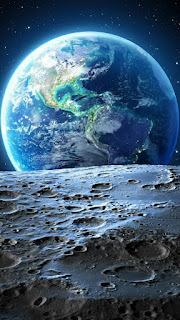What is Earth
Earth is the third planet from the Sun and the only known object in the universe to support life. It is a terrestrial planet, meaning it is a rocky planet that is similar in composition to the other terrestrial planets in the solar system (Mercury, Venus, and Mars).
Earth has a diameter of about 12,742 kilometers (7,917 miles) and is the fifth densest planet in the solar system. It has an atmosphere that consists of 78% nitrogen, 21% oxygen, and trace amounts of other gases.
The surface of Earth is made up of a variety of landscapes, including mountains, valleys, deserts, and oceans. It is home to a diverse array of living organisms, including plants, animals, and humans.
Earth has a single large natural satellite, the Moon, which has a significant effect on the planet's tides and rotation. The Earth-Moon system is also the source of Earth's month, which is based on the lunar cycle.



